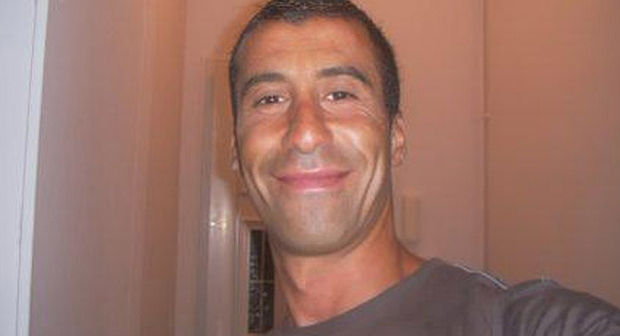A victim – and a hero – of the recent attacks in Paris have been singled out in media coverage as examples of “good Muslimsâ€. THERESA MALLINSON argues that fetishising the victims and heroes is not just another form of bigotry – it’s also bad journalism. Why not focus on their humanity?
Since the horrific attacks in Paris last week, there have been several calls for Muslims – individually and as a community – to apologise for these acts of terrorism. There have also been many explainers demonstrating that such demands are bigoted.
So having established that Muslims shouldn’t be asked to apologise (which is fairly obvious), a new issue has emerged. The very outlets railing against the so-called bigots have now turned to celebrating
In case you haven’t heard: Ahmet Merabet – the policeman shot by Cherif and Said Kouachi as they fled the scene of the attack on the Charlie Hebdo offices – was Muslim. So is Lassana Bathily – the hero who hid customers in a cold-storage room during Amedy Coulibaly’s attack on a kosher supermarket.
This, as they say, is “ironicâ€.
I kid you not. The web is replete with several references to this so-called irony, and I’m struggling to understand it.
How is Merabet’s death any different to that of Clarissa Jean-Phillipe, the policewoman gunned down by Coulibaly on Thursday? I haven’t seen any articles referencing her religion – it’s seen as irrelevant – unlike Merabet’s.
Why do we need headlines like: “The Muslim Cop killed by terrorists� Doesn’t a cop – killed by an assailant – merit a story in and of itself?
The fact that Merabet was Muslim is noteworthy only as a reminder that Muslims throughout the world are targeted every day by radical groups with a political agenda – not because it is somehow “ironicâ€.
This idea of differentiating “good Muslims†from “bad Muslims†has long been an obsession of the West, and continues today, even after Mahmood Mamdani devoted a whole book to calling it out:
“…unless proved to be ‘good’, every Muslim was presumed to be ‘bad’. All Muslims were now under obligation to prove their credentials by joining in a war against ‘bad Muslims’.
“[But] there are no readily available ‘good’ Muslims split off from ‘bad’ Muslims, which would allow for the embrace of the former and the casting off of the latter, just as there are no ‘good’ Christians or Jews split off from ‘bad’ ones.â€
Let’s look at the case of Bathily, the supermarket hero and the latest “good Muslim†poster boy. Whatever his race or creed, his actions are clearly praiseworthy. But I’ve yet to find a single article online that doesn’t reference his religion.
Conversely, I’ve yet to find even one article about Michel Catalano, who was held hostage by the Kouachi brothers at his printworks at Dammartin-en-Goële, that states what – if any – religion he practices.
There’s a double standard here. Why are Merabet and Bathily framed in terms of their religion, when we are not told the religious affiliations of Jean-Phillipe and Catalano?
In describing Merabet and Bathily as Muslim, there’s an implicit assumption that is left unvoiced: Merabet was killed even though he was Muslim; Bathily was a hero despite being Muslim.
In a seeming act of self-sabotage, the media houses and journalists that purport to frame the story as one that has little to do with Muslims or Islam have done precisely that.
But Merabet’s fate and Bathily’s action are not unusual. Throughout the world, many Muslims are killed each day by other Muslims in the name of money, power, religion – even smarties; equally, many Muslims commit heroic acts in the face of armed groups or oppressive government and military regimes. And, like all humans, many other Muslims just watch, ignore or do nothing.
Even Muslims themselves have fallen into this trap. Whereas many Muslims were quick to point out that the attackers and hostage-takers did not represent them, others were prompt to state the cop and the hero, in particular, did.
I grieve for Ahmed Merabet – as I grieve for all those killed in the recent attacks; I celebrate Lassana Bathily – as I celebrate all those in France who have displayed bravery over the last few days – not because they have have shown what it means to be “good Muslimsâ€, but because they have shown what it means to be good humans.
Featured image: Ahmed Merabet, via Facebook.









